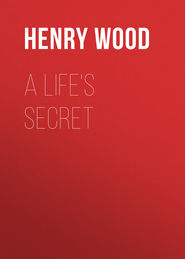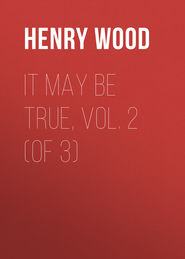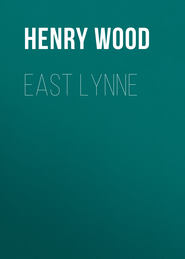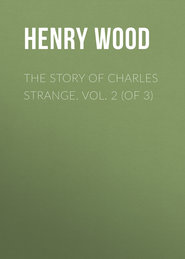По всем вопросам обращайтесь на: info@litportal.ru
(©) 2003-2024.
✖
Elster's Folly
Настройки чтения
Размер шрифта
Высота строк
Поля
"And what about dismissing the countess-dowager? You will do it?"
"I shall be only too thankful to do it. All my courage has come back to me, thank Heaven!"
The Countess-Dowager of Kirton's reign was indeed over; never would he allow her to disturb the peace of his house again. He might have to pension her off, but that was a light matter. His intention was to speak to her in a few days' time, allowing an interval to elapse after the boy's death; but she forestalled the time herself, as Val was soon to find.
Dinner that evening was a sad meal—sad and silent. The only one who did justice to it was the countess-dowager—in a black gauze dress and white crêpe turban. Let what would betide, Lady Kirton never failed to enjoy her dinner. She had a scheme in her head; it had been working there since the day of her grandson's death; and when the servants withdrew, she judged it expedient to disclose it to Hartledon, hoping to gain her point, now that he was softened by sorrow.
"Hartledon, I want to talk to you," she began, critically tasting her wine; "and I must request that you'll attend to me."
Anne looked up, wondering what was coming. She wore an evening dress of black crêpe, a jet necklace on her fair neck, jet bracelets on her arms: mourning far deeper than the dowager's.
"Are you listening to me, Val?"
"I am quite ready," answered Val.
"I asked you, once before, to let me have Maude's children, and to allow me a fair income with them. Had you done so, this dreadful misfortune would not have overtaken your house: for it stands to reason that if Lord Elster had been living somewhere else with me, he could not have caught scarlet-fever in London."
"We never thought he did catch it," returned Hartledon. "It was not prevalent at the time; and, strange to say, none of the other children took it, nor any one else in the house."
"Then what gave it him?" sharply uttered the dowager.
What Val answered was spoken in a low tone, and she caught one word only, Providence. She gave a growl, and continued.
"At any rate, he's gone; and you have now no pretext for refusing me Maude. I shall take her, and bring her up, and you must make me a liberal allowance for her."
"I shall not part with Maude," said Val, in quiet tones of decision.
"You can't refuse her to me, I say," rejoined the dowager, nodding her head defiantly; "she's my own grandchild."
"And my child. The argument on this point years ago was unsatisfactory, Lady Kirton; I do not feel disposed to renew it. Maude will remain in her own home."
"You are a vile man!" cried the dowager, with an inflamed face. "Pass me the wine."
He filled her glass, and left the decanter with her. She resumed.
"One day, when I was with Maude, in that last illness of hers in London, when we couldn't find out what was the matter with her, poor dear, she wrote you a letter; and I know what was in it, for I read it. You had gone dancing off somewhere for a week."
"To the Isle of Wight, on your account," put in Lord Hartledon, quietly; "on that unhappy business connected with your son who lives there. Well, ma'am?"
"In that letter Maude said she wished me to have charge of her children, if she died; and begged you to take notice that she said it," continued the dowager. "Perhaps you'll say you never had that letter?"
"On the contrary, madam, I admit receiving it," he replied. "I daresay I have it still. Most of Maude's letters lie in my desk undisturbed."
"And, admitting that, you refuse to act up to it?"
"Maude wrote in a moment of pique, when she was angry with me. But—"
"And I have no doubt she had good cause for anger!"
"She had great cause," was his answer, spoken with a strange sadness that surprised both the dowager and Lady Hartledon. Thomas Carr was twirling his wine-glass gently round on the white cloth, neither speaking nor looking.
"Later, my wife fully retracted what she said in that letter," continued Val. "She confessed that she had written it partly at your dictation, Lady Kirton, and said—but I had better not tell you that, perhaps."
"Then you shall tell me, Lord Hartledon; and you are a two-faced man, if you shuffle out of it."
"Very well. Maude said that she would not for the whole world allow her children to be brought up by you; she warned me also not to allow you to obtain too much influence over them."
"It's false!" said the dowager, in no way disconcerted.
"It is perfectly true: and Maude told me you knew what her sentiments were upon the point. Her real wish, as expressed to me, was, that the children should remain with me in any case, in their proper home."
"You say you have that other letter still?" cried the dowager, who was not always very clear in her conversation.
"No doubt."
"Then perhaps you'll look for it: and read over her wishes in black and white."
"To what end? It would make no difference in my decision. I tell you, ma'am, I am consulting Maude's wishes in keeping her child at home."
"I know better," retorted the dowager, completely losing her temper. "I wish your poor dear wife could rise from her grave and confute you. It's all stinginess; because you won't part with a paltry bit of money."
"No," said Val, "it's because I won't part with my child. Understand me, Lady Kirton—had Maude's wishes even been with you in this, I should not carry them out. As to money—I may have something to say to you on that score; but suppose we postpone it to a more fitting opportunity."
"You wouldn't carry them out!" she cried. "But you might be forced to, you mean man! That letter may be as good as a will in the eyes of the law. You daren't produce it; that's what it is."
"I'll give it you with pleasure," said Val, with a smile. "That is, if I have kept it. I am not sure."
She caught up her fan, and sat fanning herself. The reservation had suggested a meaning never intended to her crafty mind; her rebellious son-in-law meant to destroy the letter; and she began wondering how she could outwit him.
A sharp cry outside the door interrupted them. The children were only coming in to dessert now; and Reginald, taking a flying leap down the stairs, took rather too long a one, and came to grief at the bottom. Truth to say, the young gentleman, no longer kept down by poor Edward, was getting high-spirited and venturesome.
"What's that?" asked Anne, as the nurse came in with them, scolding.
"Lord Elster fell down, my lady. He's getting as tiresome as can be. Only to-day, I caught him astride the kitchen banisters, going to slide down them."
"Oh, Regy," said his mother, holding up her reproving finger.
The boy laughed, and came forward rubbing his arm, and ashamed of his tears. Val caught him up and kissed them away, drawing Maude also to his side.
That letter! The dowager was determined to get it, if there was a possibility of doing so. A suspicion that she would not be tolerated much longer in Lady Hartledon's house was upon her, and she knew not where to go. Kirton had married again; and his new wife had fairly turned her out more unceremoniously than the late one did. By hook or by crook, she meant to obtain the guardianship of her granddaughter, because in giving her Maude, Lord Hartledon would have to allow her an income.
She was a woman to stop at nothing; and upon quitting the dining-room she betook herself to the library—a large, magnificent room—the pride of Hartledon. She had come in search of Val's desk; which she found, and proceeded to devise means of opening it. That accomplished, she sat herself down, like a leisurely housebreaker, to examine it, putting on a pair of spectacles, which she kept surreptitiously in a pocket, and would not have worn before any one for the world. She found the letter she was in search of; and she found something else for her pains, which she had not bargained for.
Not just at first. There were many tempting odds and ends of things to dip into. For one thing, she found Val's banking book, and some old cheque-books; they served her for some time. Next she came upon two packets sealed up in white paper, with Val's own seal. On one was written, "Letters of Lady Maude;" on the other, "Letters of my dear Anne." Peering further into the desk, she came upon an obscure inner slide, which had evidently not been opened for years, and she had difficulty in undoing it. A paper was in it, superscribed, "Concerning A.W.;" on opening which she found a letter addressed to Thomas Carr, of the Temple.
Thomas Carr's letters were no more sacred with her than Lord Hartledon's. No woman living was troubled with scruples so little as she. It proved to have been written by a Dr. Mair, in Scotland, and was dated several years back.
But now—did Lord Hartledon really know he had that dangerous letter by him? If so, what could have possessed him to preserve it? Or, did he not rather believe he had returned it to Mr. Carr at the time? The latter, indeed, proved to be the case; and never, to the end of his life, would he, in one sense, forgive his own carelessness.
"I shall be only too thankful to do it. All my courage has come back to me, thank Heaven!"
The Countess-Dowager of Kirton's reign was indeed over; never would he allow her to disturb the peace of his house again. He might have to pension her off, but that was a light matter. His intention was to speak to her in a few days' time, allowing an interval to elapse after the boy's death; but she forestalled the time herself, as Val was soon to find.
Dinner that evening was a sad meal—sad and silent. The only one who did justice to it was the countess-dowager—in a black gauze dress and white crêpe turban. Let what would betide, Lady Kirton never failed to enjoy her dinner. She had a scheme in her head; it had been working there since the day of her grandson's death; and when the servants withdrew, she judged it expedient to disclose it to Hartledon, hoping to gain her point, now that he was softened by sorrow.
"Hartledon, I want to talk to you," she began, critically tasting her wine; "and I must request that you'll attend to me."
Anne looked up, wondering what was coming. She wore an evening dress of black crêpe, a jet necklace on her fair neck, jet bracelets on her arms: mourning far deeper than the dowager's.
"Are you listening to me, Val?"
"I am quite ready," answered Val.
"I asked you, once before, to let me have Maude's children, and to allow me a fair income with them. Had you done so, this dreadful misfortune would not have overtaken your house: for it stands to reason that if Lord Elster had been living somewhere else with me, he could not have caught scarlet-fever in London."
"We never thought he did catch it," returned Hartledon. "It was not prevalent at the time; and, strange to say, none of the other children took it, nor any one else in the house."
"Then what gave it him?" sharply uttered the dowager.
What Val answered was spoken in a low tone, and she caught one word only, Providence. She gave a growl, and continued.
"At any rate, he's gone; and you have now no pretext for refusing me Maude. I shall take her, and bring her up, and you must make me a liberal allowance for her."
"I shall not part with Maude," said Val, in quiet tones of decision.
"You can't refuse her to me, I say," rejoined the dowager, nodding her head defiantly; "she's my own grandchild."
"And my child. The argument on this point years ago was unsatisfactory, Lady Kirton; I do not feel disposed to renew it. Maude will remain in her own home."
"You are a vile man!" cried the dowager, with an inflamed face. "Pass me the wine."
He filled her glass, and left the decanter with her. She resumed.
"One day, when I was with Maude, in that last illness of hers in London, when we couldn't find out what was the matter with her, poor dear, she wrote you a letter; and I know what was in it, for I read it. You had gone dancing off somewhere for a week."
"To the Isle of Wight, on your account," put in Lord Hartledon, quietly; "on that unhappy business connected with your son who lives there. Well, ma'am?"
"In that letter Maude said she wished me to have charge of her children, if she died; and begged you to take notice that she said it," continued the dowager. "Perhaps you'll say you never had that letter?"
"On the contrary, madam, I admit receiving it," he replied. "I daresay I have it still. Most of Maude's letters lie in my desk undisturbed."
"And, admitting that, you refuse to act up to it?"
"Maude wrote in a moment of pique, when she was angry with me. But—"
"And I have no doubt she had good cause for anger!"
"She had great cause," was his answer, spoken with a strange sadness that surprised both the dowager and Lady Hartledon. Thomas Carr was twirling his wine-glass gently round on the white cloth, neither speaking nor looking.
"Later, my wife fully retracted what she said in that letter," continued Val. "She confessed that she had written it partly at your dictation, Lady Kirton, and said—but I had better not tell you that, perhaps."
"Then you shall tell me, Lord Hartledon; and you are a two-faced man, if you shuffle out of it."
"Very well. Maude said that she would not for the whole world allow her children to be brought up by you; she warned me also not to allow you to obtain too much influence over them."
"It's false!" said the dowager, in no way disconcerted.
"It is perfectly true: and Maude told me you knew what her sentiments were upon the point. Her real wish, as expressed to me, was, that the children should remain with me in any case, in their proper home."
"You say you have that other letter still?" cried the dowager, who was not always very clear in her conversation.
"No doubt."
"Then perhaps you'll look for it: and read over her wishes in black and white."
"To what end? It would make no difference in my decision. I tell you, ma'am, I am consulting Maude's wishes in keeping her child at home."
"I know better," retorted the dowager, completely losing her temper. "I wish your poor dear wife could rise from her grave and confute you. It's all stinginess; because you won't part with a paltry bit of money."
"No," said Val, "it's because I won't part with my child. Understand me, Lady Kirton—had Maude's wishes even been with you in this, I should not carry them out. As to money—I may have something to say to you on that score; but suppose we postpone it to a more fitting opportunity."
"You wouldn't carry them out!" she cried. "But you might be forced to, you mean man! That letter may be as good as a will in the eyes of the law. You daren't produce it; that's what it is."
"I'll give it you with pleasure," said Val, with a smile. "That is, if I have kept it. I am not sure."
She caught up her fan, and sat fanning herself. The reservation had suggested a meaning never intended to her crafty mind; her rebellious son-in-law meant to destroy the letter; and she began wondering how she could outwit him.
A sharp cry outside the door interrupted them. The children were only coming in to dessert now; and Reginald, taking a flying leap down the stairs, took rather too long a one, and came to grief at the bottom. Truth to say, the young gentleman, no longer kept down by poor Edward, was getting high-spirited and venturesome.
"What's that?" asked Anne, as the nurse came in with them, scolding.
"Lord Elster fell down, my lady. He's getting as tiresome as can be. Only to-day, I caught him astride the kitchen banisters, going to slide down them."
"Oh, Regy," said his mother, holding up her reproving finger.
The boy laughed, and came forward rubbing his arm, and ashamed of his tears. Val caught him up and kissed them away, drawing Maude also to his side.
That letter! The dowager was determined to get it, if there was a possibility of doing so. A suspicion that she would not be tolerated much longer in Lady Hartledon's house was upon her, and she knew not where to go. Kirton had married again; and his new wife had fairly turned her out more unceremoniously than the late one did. By hook or by crook, she meant to obtain the guardianship of her granddaughter, because in giving her Maude, Lord Hartledon would have to allow her an income.
She was a woman to stop at nothing; and upon quitting the dining-room she betook herself to the library—a large, magnificent room—the pride of Hartledon. She had come in search of Val's desk; which she found, and proceeded to devise means of opening it. That accomplished, she sat herself down, like a leisurely housebreaker, to examine it, putting on a pair of spectacles, which she kept surreptitiously in a pocket, and would not have worn before any one for the world. She found the letter she was in search of; and she found something else for her pains, which she had not bargained for.
Not just at first. There were many tempting odds and ends of things to dip into. For one thing, she found Val's banking book, and some old cheque-books; they served her for some time. Next she came upon two packets sealed up in white paper, with Val's own seal. On one was written, "Letters of Lady Maude;" on the other, "Letters of my dear Anne." Peering further into the desk, she came upon an obscure inner slide, which had evidently not been opened for years, and she had difficulty in undoing it. A paper was in it, superscribed, "Concerning A.W.;" on opening which she found a letter addressed to Thomas Carr, of the Temple.
Thomas Carr's letters were no more sacred with her than Lord Hartledon's. No woman living was troubled with scruples so little as she. It proved to have been written by a Dr. Mair, in Scotland, and was dated several years back.
But now—did Lord Hartledon really know he had that dangerous letter by him? If so, what could have possessed him to preserve it? Or, did he not rather believe he had returned it to Mr. Carr at the time? The latter, indeed, proved to be the case; and never, to the end of his life, would he, in one sense, forgive his own carelessness.











